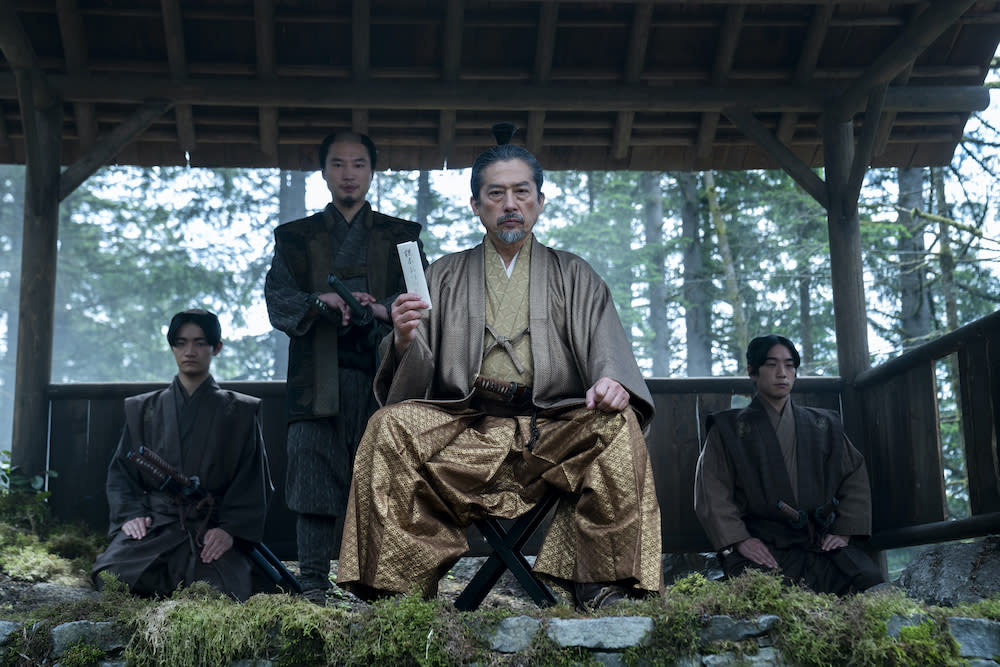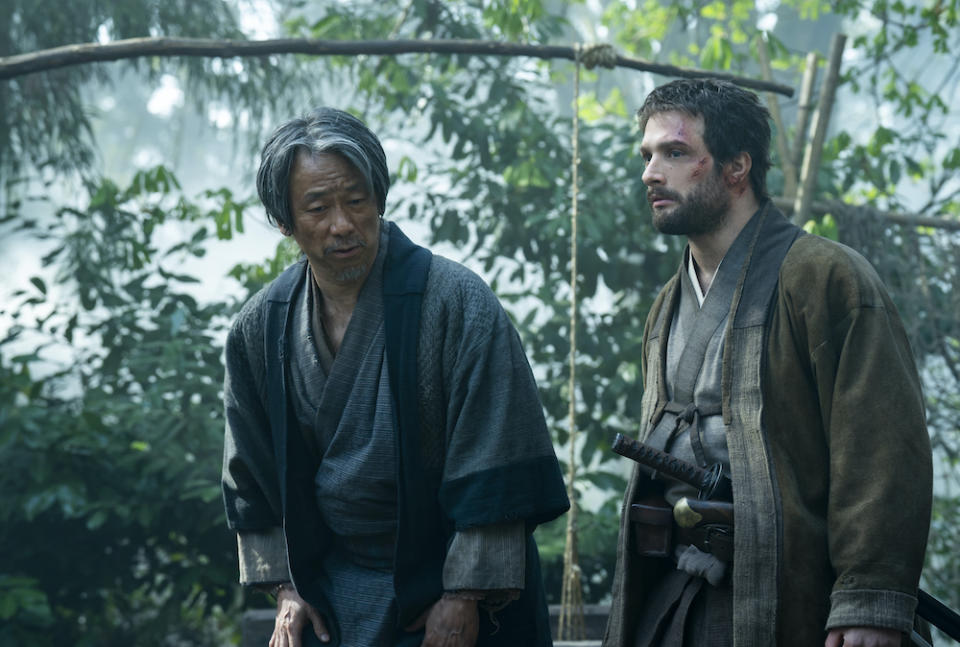‘Shogun’ Tames the Winds of War in a Dreamy Finale

[Editor’s Note: The following review contains spoilers for “Shōgun” Episode 10, “A Dream of a Dream,” including the ending.]
As a sweeping samurai epic, “Shōgun” understands it’s meant to end a certain way. Opposing parties draw swords, don their armor, and square off on the battlefield. Tensions teased over nine hours erupt in the roar of combat. That’s how grand conflicts regarding the future of great nations have been decided for centuries, and it’s only natural for a visual medium like film (or prestige television) to embrace war’s inherent spectacle. Soldiers charging down a hillside, canons firing across an open plain, horses galloping through fields filled with bodies either dead or clinging to life, as the grass under their feet quickly deteriorates into muddied, bloodied slop. These are the scenes we expect in an epic’s ending.
More from IndieWire
Because we’ve seen those images so many times — slain men strewn over blackened trenches — it’s easy to forget that they aren’t natural. War may feel like the only way forward because it’s familiar, both in reality and on screens, but it’s thoroughly and inevitably destructive. Men are mangled and decimated along with the ground they sprint, ride, and fall across. Where once there was a peaceful meadow, now there’s just a half-dug cemetery. No wonder then, when Lord Ishido (Takehiro Hira) shouts, “War is inevitable,” the earth itself shakes in rebuttal. The Council of Regents knows as much, worrying the minor quake is a sign of doom, but Ishido refuses to acknowledge such superstitions. To him, there is only one way forward. It is what he knows and, yes, what he wants.
But to Lord Toranaga (and therefore to “Shōgun” itself), there’s another course. This student of the wind, this dreamer of dreams, he sees a way out that doesn’t require fallen soldiers or scorched earth. Through his intimate knowledge of individuals, astute planning, and selfless sacrifices (or, one may argue, selfish leadership), Toranaga turns his vision into being: a “nation without wars.”
So “Shōgun” ends not with war, but with a poem. And it’s all the better for it.
In Episode 10, “A Dream of a Dream,” Lady Ochiba (Fumi Nikaido) completes the poem Mariko (Anna Sawai) began before her death. Picking up from “on a leafless branch,” Ochiba suggests continuing the verse with, “Flowers are only flowers because they fall” — an acknowledgement that Ochiba (whose name translates to “fallen leaves”) and Mariko (her childhood friend) would’ve never become the people they did, or served their distinct purpose, without separating. It’s a graceful, generous sentiment, and one that helps explain why Ochiba stood up for Mariko at the Council meeting (when Ishido wanted to hurry into war).
…and why she ultimately sides with Toranaga by pledging the Heir’s armies to him instead of Ishido. “But thankfully, the wind,” she says — a reference that comes back around when Toranaga explains his triumphant plan to Yabushige (Tadanobu Asano) on the hillside, to end the series. Impressed with Toranaga’s foresight, Yabushige asks him how it feels “to shape the wind to your will.” “I don’t control the wind,” Toranaga says. “I only study it.” But he is the wind Ochiba credits with bringing her back to Mariko — for reconnecting fallen leaves with their branch, even if the branch could not be saved in the process.

Toranaga sacrificing Mariko as part of his plan is sure to rankle some viewers. Cynics will argue he positioned her in order to maintain power and ascend to Shōgun status, as Yabushige suggests. But Crimson Sky — Toranaga’s plot to storm Osaka Castle, kill the Council, and install a new government — was never meant to lay down the lives of many for the ascension of one. It was a last resort; a long shot only to be taken if no other feasible path to victory was evident. The implication that Toranaga would send his armies to certain death never felt right. In Episode 6, he invokes Crimson Sky to protect the Heir and limit additional bloodshed. Again, he is working to reduce casualties, to avoid mass homicide, so it makes much more sense that only one person would storm the castle, disrupt the Council, and incite a new government. Even then, knowing that person has to be Mariko, Toranaga does not enact Crimson Sky rashly. It weighs on him. But he and his closest allies understand escaping all-out war is an endgame worthy of their lives.
Yabushige, who spent most of his life playing both sides while looking out for No. 1, struggles to grasp Toranaga’s unique brand of pacifism and instead accuses him of hypocrisy. “All this death and sacrifice from lesser men,” he says, “just to ensure some victory in our names?” “If you win, anything is possible,” Toranaga says in response, invoking an earlier discussion with the Anjin, but winning isn’t a matter of stature or personal glory. Whether Toranaga’s impossible dream ends with him as Shōgun isn’t the point. The point is what doesn’t happen, rather than what does. It’s the lives spared, not the lives lost. Mariko’s sacrifice saves thousands upon thousands from similar fates, but Toranaga isn’t spared the pain tied to her loss.
Absence is at the center of “Shōgun’s” ending. Mariko is gone. Yabushige soon follows. The death that started it all — the Taikō’s — lingers, and yet the war it was said to provoke is nowhere to be found. By rejecting the bloody battle audiences have come to expect, some may experience the final hour as anticlimactic. Their instincts may tell them something is missing, and they’d be right. Something is missing, but that’s very much the point. Peace is not often thrilling. Sheathed swords aren’t as entertaining as clashing metal, and a field of stoic soldiers doesn’t make for quite the spectacle of a massive attack. But war shouldn’t be seen as inevitability, especially today, when our modern reality makes Toranaga’s dream feel all the more ephemeral. The ongoing genocide in Gaza, the rising conflict between Israel and Iran — it can feel like no matter where you look, war is inevitable.
But it doesn’t have to be. Toranaga rejects the way things are to realize a future that only exists in his dreams. Isn’t that what TV gives us? The opportunity to witness our dreams turned into a reality? What could make for a better ending than that?
Grade: A
“Shōgun,” an FX production, is available on Hulu.
Best of IndieWire
Sign up for Indiewire's Newsletter. For the latest news, follow us on Facebook, Twitter, and Instagram.

